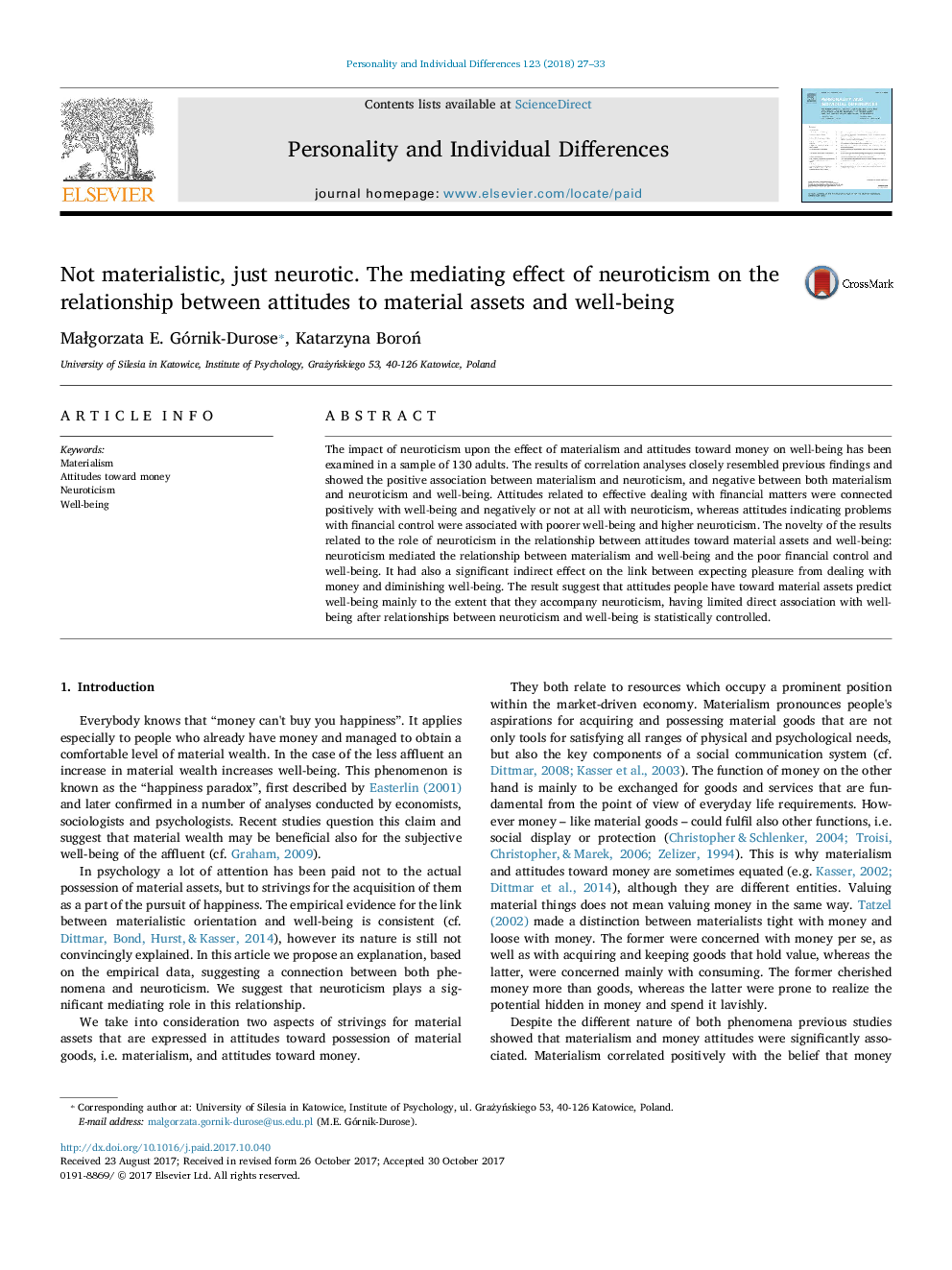ترجمه فارسی عنوان مقاله
نه مادی گرایی، فقط روان رنجور. اثر میانجی گرایی بر روابط بین نگرش به دارایی های مادی و رفاه
عنوان انگلیسی
Not materialistic, just neurotic. The mediating effect of neuroticism on the relationship between attitudes to material assets and well-being
| کد مقاله | سال انتشار | تعداد صفحات مقاله انگلیسی |
|---|---|---|
| 91717 | 2018 | 7 صفحه PDF |
منبع

Publisher : Elsevier - Science Direct (الزویر - ساینس دایرکت)
Journal : Personality and Individual Differences, Volume 123, 1 March 2018, Pages 27-33
ترجمه کلمات کلیدی
ماتریالیسم، نگرش نسبت به پول، روانپزشکی تندرستی،
کلمات کلیدی انگلیسی
Materialism; Attitudes toward money; Neuroticism; Well-being;
ترجمه چکیده
تأثیر روان نژندی بر اثر ماتریالیسم و نگرش نسبت به پول بر سلامت در نمونه ای از 130 بزرگسال مورد بررسی قرار گرفته است. نتایج تجزیه و تحلیل همبستگی بسیار نزدیک به یافته های قبلی بوده و ارتباط مثبت بین ماتریالیسم و روان رنجوری را نشان می دهد و منفی میان ماتریالیسم و روان رنجور و رفاه نیز منفی است. نگرش های مربوط به برخورداری موثر از مسائل مالی به طور مثبت با رفاه و منفی و یا کاملا با روان رنجوری ارتباط داشتند، در حالی که نگرش هایی که نشان دهنده مشکلات کنترل مالی با رفاه و رضایت بیشتر بود، همراه بود. نوآوری نتایج مربوط به نقش روان رنجور در رابطه بین نگرش نسبت به دارایی های مادی و رفاه: روان گرایی، روابط میان مادی گرایی و رفاه و کنترل مالی ضعیف و رفاه را متمرکز می داند. همچنین اثر غیرمستقیم قابل توجهی بر ارتباط بین انتظارات لذت از برخورد با پول و کاهش رفاه است. نتیجه نشان می دهد که نگرش مردم نسبت به دارایی های مادی به خوبی پیش بینی می شود، به طور عمده به این معنی است که آنها با روان رنجوری همراه می شوند و ارتباط مستقیم آنها با رفاه پس از روابط بین روان رنجوری و رفاه به طور آماری کنترل می شود.

